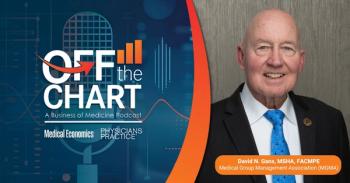
Asset Protection Issues for Docs Include Credit Fraud
Physicians have to ensure they are not falling victim to two common types of financial fraud related to their credit.
Asset protection issues affecting doctors go far beyond medical malpractice and one vital financial exposure is related to your spending patterns and affluence. Physicians must ensure they check on two common types of financial fraud: Unauthorized purchases and charges that may have been made using your cards or accounts over the holidays and perhaps worse, new credit accounts that may have been opened in your name.
Americans Aren’t Paying Enough Attention to their Credit
We tend to undervalue the benefits and costs of our individual credit ratings. According to information I recently received from consumer credit attorney, Kevin Hardin with McCarthy Law PLC in Scottsdale Ariz., nearly 20 percent of us, or roughly 40 million Americans, have at least one error on their credit reports. In some cases, you need legal representation to get those errors corrected. In other cases, you can file a formal dispute with the agency or agencies that have the incorrect information. They have to investigate within a reasonable period of time and correct the information if you are found to be correct.
The Federal Trade Commission's (FTC) website has done an excellent job of boiling all the information you need
You can order your free report at
New Accounts Opened in Your Name During the Holidays
Many credit issuers, and department stores in particular, run specials over the holidays offering consumers low interest or free financing or deep “today only” discounts to entice multiple large purchases. At this time of year their employees may also be incentivized to open additional new accounts, innocently exposing you would be scammers in the rush to get it approved at the cash register. This creates exposure that can negatively affect your credit in several ways and make getting new credit for things you actually want significantly more difficult or expensive. Look at your credit reports (all three) carefully for any unfamiliar creditors or new accounts including for things like mortgages and auto loans, not all the crooks think small.
Check Your Existing Credit and Debit Statements in the Last Few Months Carefully
You should always review these statements (both business and personal) on a monthly basis and have text or email alerts set up on your existing credit and debit cards. These alerts typically cover issues like payment reminders, but they can also be set to copy you on every purchase or credit limits, limit increases and other issues that can help tip you off if something unauthorized or irregular is going on.
The holidays increase the risks of these issues. Scammers know that it’s easier to use account numbers or skimmed cards to make purchases that may likely get missed in a quick review of your bigger-than-usual statements. It is a good idea to do a quick re-read (if not a first read) of your bank account, credit, and debit card statements starting with October when Christmas and other holiday shopping volume increases. It’s also common that your spouse, children, or other authorized users may have been handed your card or account information with instructions to pick something specific up and you may assume the purchases are the ones you authorized, so look for any unusual vendors, amounts or frequency of purchases as the first red flags.
Newsletter
Optimize your practice with the Physicians Practice newsletter, offering management pearls, leadership tips, and business strategies tailored for practice administrators and physicians of any specialty.









